As Columbus announced when he knew he was bounced, “It was swell, Isabelle, swell.”
As Abelard said to Eloise, “Don’t forget to drop a line to me, please.”
As Juliet cried in her Romeo’s ear, “Romeo, why not face the fact, my dear?”

Let me take a moment to explain the difference between book and lyrics. In this context, book isn’t something you read at home with a lovely warm drink at your elbow. Book, in this case, means the spoken parts of a musical—the words between the songs. The lyrics are the words the actors are singing. Sometimes the book and lyrics are by the same person. In this case, they are not.
I’d originally thought to just gloss over the play Jubilee, but reading a bit about it, I cannot. Sometime before 1935, Porter and Hart decided to take their families on a world cruise, and while they were out and about, they would write a musical.
It was the silver jubilee year of King George V of Great Britain. (George V was Queen Elizabeth II’s grandfather.) And thus was born the ridiculous plot of Jubilee. We have a royal family, king, queen, prince, and princess of a fictitious country. They hear rumors of a possible insurrection. What do they do? Do they call up the army? Discover the causes of unrest in their country? No, they hightail it out of the castle and hide, in-plain-sight, as ordinary people. Except they are not ordinary people.
The queen falls head over heels in love with a swimmer-turned-actor, a thinly disguised Johnny Weissmuller. What? You don’t know who Johnny Weissmuller was? Shame! He was the second, and most famous, person to play Tarzan in the original movies, starting in 1932. He was an Olympic gold-medal swimmer and set 67 world-records. So there! One thing he really could not do was act. But he starred in 12 Tarzan movies.)
The king starts doing rope tricks and falls for the society hostess, Eva Standing, who was apparently a thinly veiled Elsa Maxwell. Don’t feel too bad, I had to look her up, too. Elsa Maxwell was a gossip columnist, author, songwriter, and professional hostess well-known for hosting parties with royalty and the rich and famous of her day. She is credited with inventing the idea of the scavenger hunt as a party game. Okay, then.
The prince and princess also become involved with disguised iconic characters: Ginger Rogers and Noel Coward. I’m getting tired of explaining these. If you don’t know, you can follow the links. Trust me, there’s a lot more explanations to come!
By the end of the play, word comes that the insurrection wasn’t really going to happen. Oops! And everyone goes back to the palace and life returns to normalcy. What saves this from being a pile of dog poop is the wit of Moss Hart’s book and Cole Porter’s songs.
There have not been many revivals of Jubilee. Why? Because the orchestration was lost. Yup. Lost. In 1948, the St. Louis Municipal Opera Company ordered the music for a production. En route, the orchestration was lost. Normally, this would not have been a problem, but they had been sent the originals and there were no copies. Jubilee was considered a lost show until 1985 when the New Amsterdam Theatre Company had the music reconstructed.
I have long maintained that Cole Porter was one of the most erudite American composers, ever. Let’s look at the opening to “Just One of Those Things” again:
As Columbus announced when he knew he was bounced, “It was swell, Isabelle, swell.”
As Abelard said to Eloise, “Don’t forget to drop a line to me, please.”
As Juliet cried in her Romeo’s ear, “Romeo, why not face the fact, my dear?”

Dorothy Parker was a member of the Algonquin Round Table, a group of mostly male authors that drank and dined at New York’s Algonquin Hotel from 1918 into the 1930s. She wrote essays, short stories, poetry, plays, and screenplays. Sadly, she is most famous for: Guys don’t make passes at girls who wear glasses, or the slightly less objectional: Candy is dandy, but liquor is quicker. My favorite of her poems is:
Such glorious faith as fills your limpid eyes,
Dear little friend of mine, I never knew.
All-innocent are you, and yet all-wise.
(For Heaven's sake, stop worrying that shoe!)
You look about, and all you see is fair;
This mighty globe was made for you alone.
Of all the thunderous ages, you're the heir.
(Get off the pillow with that dirty bone!)
A skeptic world you face with steady gaze;
High in young pride you hold your noble head,
Gayly you meet the rush of roaring days.
(Must you eat puppy biscuit on the bed?)
Lancelike your courage, gleaming swift and strong,
Yours the white rapture of a winged soul,
Yours is a spirit like a Mayday song.
(God help you, if you break the goldfish bowl!)
"Whatever is, is good" - your gracious creed.
You wear your joy of living like a crown.
Love lights your simplest act, your every deed.
(Drop it, I tell you- put that kitten down!)
You are God's kindliest gift of all - a friend.
Your shining loyalty unflecked by doubt,
You ask but leave to follow to the end.
(Couldn't you wait until I took you out?)
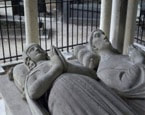
And what about the references in the song?
Christopher Columbus supposedly received the financing for his trip to Asia when Queen Isabella of Castile sold her pearls. Not even remotely true. How do these rumors start?
Ah, Abelard and Eloise. Peter Abelard was born sometime about 1079 in what would become France. He was a brilliant student and philosopher. Around 1115, he met and fell in love with Heloise d’Argenteuil. They began an affair. She got pregnant and had a son who she named Astrolabe, after the scientific instrument. (Wow. That’s a name.) The couple got married. Her uncle, a powerful and wealthy church official, did not approve. He had ruffians break into Abelard’s rooms and castrate him. Abelard retired to a monastery while Heloise became a nun. Eventually, they both rose to become the Abbot and Mother Superior of their houses. They also wrote some steamy love letters back and forth to each other. (Well, at least hers were steamy in spots. Not so sure about his.) This is an excerpt from one of her early letters to him:
And this leads me to Romeo and Juliet. I love a good Shakespearian play, but I don’t think this is one. Oh, don’t get me wrong, I’m not a Baconian. I believe that Shakespeare wrote it, I just don’t think its particularly good. Sorry.
That leads us into the song itself, which doesn’t require such thought.
Just one of those crazy flings.
One of those bells that now and then rings,
Just one of those things.
It was just one of those nights,
Just one of those fabulous flights,
A trip to the moon on gossamer wings,
Just one of those things.
If we’d thought a bit of the end of it
When we started painting the town,
We’d have been aware
That our love affair
Was too hot not to cool down.
So good-bye, dear and Amen,
Here’s hoping we meet now and then,
It was great fun,
But it was just one of those things.
Both of these songs are now part of what is called the Great American Songbook. Do you have a favorite Cole Porter entry into the Songbook? There are so many to choose from, and thanks to Lady Gaga and a few others, another generation is being introduced to these wonderful songs. I’ll be playing these and a few other Cole Porter songs this week on my Minnich Music Facebook page, so please be sure to check them out.
Until next time!
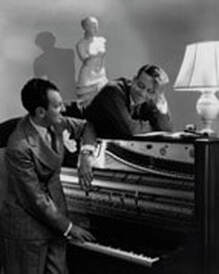

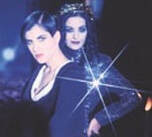

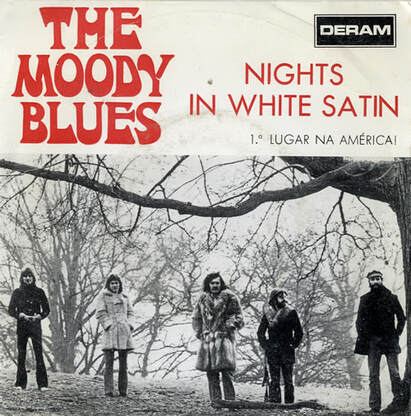



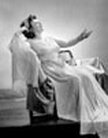
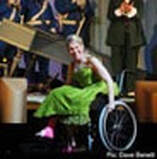
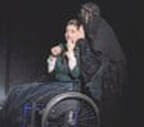

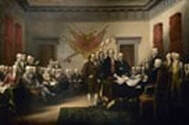
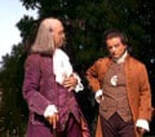

 RSS Feed
RSS Feed